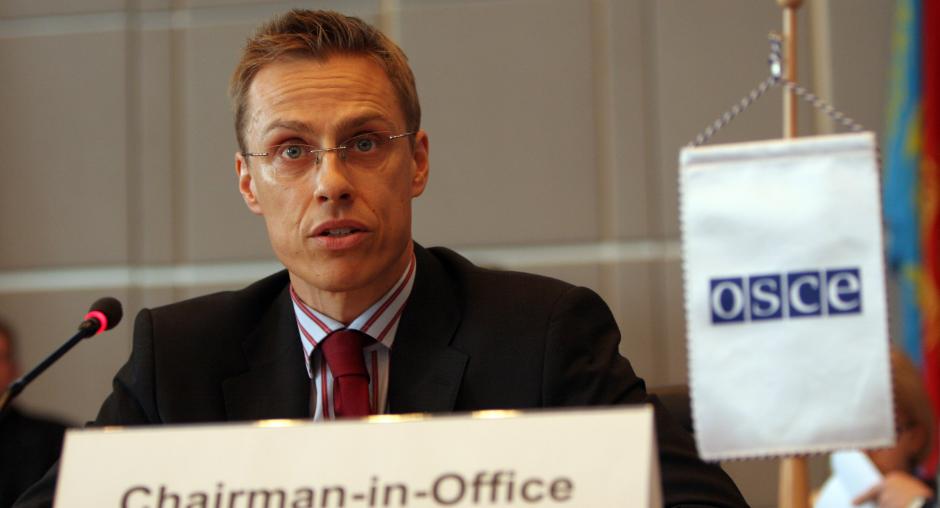New OSCE Chairman urges solution of region's frozen conflicts, outlines other priorities for rest of year

VIENNA, 10 April 2008 - The OSCE needs to focus on the issues where it can make a real difference, including solving the region's frozen conflicts, the OSCE Chairman-in-Office, newly appointed Finnish Foreign Minister Alexander Stubb, told the Organization's Permanent Council today.
"We must seriously look for solutions to the so-called frozen conflicts. My aim is to re-energize efforts towards peaceful settlement of these conflicts," said the Chairman-in-Office. "I sincerely hope that the efforts of the Finnish Chairmanship are met with constructive engagement by all parties. I continue to support the existing negotiation mechanisms, including the OSCE Minsk Group and its Co-Chairs."
The Co-Chairs of the OSCE Minsk Group, which is working to find a solution for the Nagorno-Karabakh conflict, are France, Russia and the United States.
Stubb, who was appointed as Foreign Minister of Finland on 4 April, also expressed concern over recent incidents in Nagorno-Karabakh and South Ossetia and appealed to all parties to refrain from violence.
The Chairman emphasized the work of the OSCE in Kosovo, and the value of its continued involvement there. He also highlighted the Organization's initiatives in Central Asia, and the OSCE's decision to enhance its engagement with Afghanistan.
"The OSCE can bring added value to current international efforts and support Afghanistan in an effective and cost-efficient manner. I will push forward the implementation of the Madrid Ministerial Council decision on OSCE engagement with Afghanistan," he said.
In November 2007, the OSCE Madrid Ministerial Council approved a decision to step up the Organization's engagement with Afghanistan, with a particular focus on intensifying OSCE action to help secure and manage borders between the OSCE's Central Asian countries and Afghanistan, train police, and support the fight against drug trafficking.
On the fight against trafficking in human beings, Minister Stubb said the OSCE must look for ways to improve prevention measures and assist victims.
The Chairman-in-Office announced that a Finnish Chairmanship proposal made at the start of the year to bring together Spain, which held the Chairmanship last year, and future Chairmanship countries Greece (2009), Kazakhstan (2010) and Lithuania (2011) this year in a "quintet" format would move forward with an informal meeting in Helsinki on 1 to 2 June.
The Minister Stubb said that the work of the Finnish Chairmanship would continue on the basis of the programme outlined at the start of the year: "The Finnish Chairmanship will continue to work on the basis of the programme we outlined this January. The three Cs - continuity, coherence and co-operation - will guide us in our endeavours."
Among other priorities of the 2008 Finnish OSCE Chairmanship are co-operation on maritime and inland waterways, promoting tolerance and non-discrimination and gender equality.
The Permanent Council is the Organization's main regular decision-making body.
